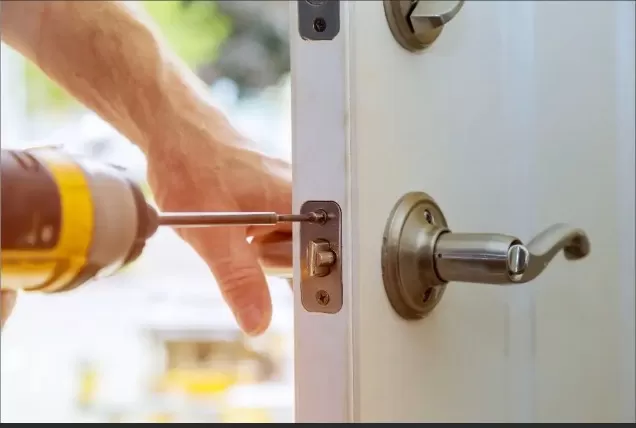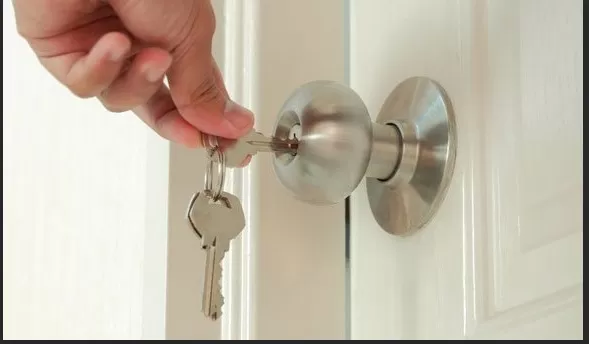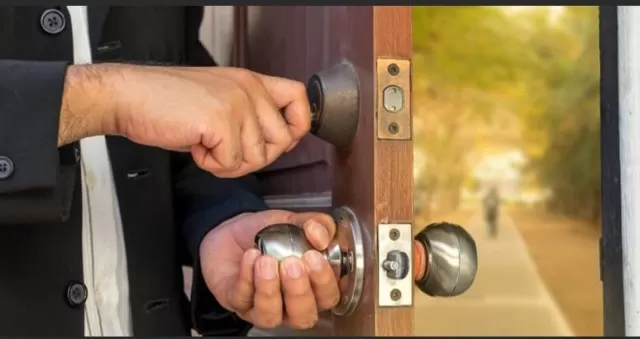Lock Rekeying Made Easy: Step-by-Step Guide. If you’re considering enhancing your home’s security by changing the locks, it’s essential to have a clear understanding of when it’s appropriate to rekey them instead of replacing them entirely.
Rekeying involves altering the internal components of the lock, rendering the existing keys ineffective, while replacement entails installing entirely new locks. By opting to rekey, you can achieve improved security while keeping your existing lock hardware intact.
Understanding the Process of Rekeying a Lock: Replacing Pins to Match a New Key

A pin and tumbler lock, commonly found on doorknobs and deadbolts, consists of several components, including a steel cutaway, a cylindrical plug, and springs and pins.
These pins and springs allow a specific key shape to turn the lock by aligning with the grooves on the key. When rekeying a lock, the goal is to enable it to be opened with a different key while rendering previous keys ineffective.
Imagine a scenario where you no longer wish to carry separate keys for your front, back, and side doors.
Rekeying the lock becomes necessary. This process involves disassembling the lock and removing the existing pins, which have varying heights.
These pins are then replaced with new ones that correspond to the cuts and grooves of the new key.
By undertaking the rekeying procedure, the lock is essentially recalibrated to accept a new key while invalidating any previous keys that were once used to operate it.
This not only provides convenience by reducing the number of keys you need to carry but also enhances security by ensuring that only authorized individuals possess A Key that can successfully unlock the lock.
Reasons to Rekey a Lock: Enhancing Convenience and Security
One of the primary motivations for rekeying a lock is the desire for convenience.
Homeowners often opt for rekeying when they prefer to streamline their key management by having a single key that can unlock all their door locks. This eliminates the need to carry a bulky keyring and reduces the time spent searching for the right key among many. With rekeying, you can lighten your load and simplify your Daily Routine.
However, rekeying a lock goes beyond convenience and can significantly enhance security measures.
Consider the scenario of a newly constructed home or apartment. During the construction process, various individuals such as contractors, subcontractors, and inspectors may have copies of the door keys.
To ensure exclusive access to their new property, homeowners often choose to rekey the locks before taking possession. By doing so, they can have peace of mind knowing that they are the only ones with keys to their home, eliminating any potential security risks associated with unauthorized key holders.
The practice of rekeying is also common among landlords and property managers.
Each time a new resident moves into a rental property, it is standard procedure to have the door locks rekeyed. This precautionary measure guarantees that previous tenants or individuals with access to spare keys no longer have entry privileges.
Whether you are moving into a pre-owned home or have misplaced a set of spare keys, rekeying presents an effective alternative to replacing the entire lock. It provides reassurance, knowing that no one else possesses a key to your home, bolstering your overall security.
By considering the benefits of rekeying, both convenience and security can be enhanced.
Whether it’s consolidating your keys, safeguarding your new property, or ensuring exclusive access to your home, rekeying offers a practical solution that brings peace of mind to homeowners and tenants alike.
Differentiating Between Lock Replacement and Rekeying: Knowing When to Choose Each Option

When it comes to changing a lock to restrict access, both replacing and rekeying are viable options.
However, there are specific situations that call for one approach over the other, and sometimes a combination of both processes may be necessary.
If you find yourself in a situation where you have lost the key to your existing lock(s), rekeying is not possible as it requires the ability to disassemble the lock.
In such cases, it is recommended to proceed with replacing the lock entirely.
It’s important to note that rekeying is not a solution for a worn or damaged lock.
If you are dealing with a lock that exhibits signs of wear and tear, such as cracks or warping in the locking mechanism, it is advisable to replace the lock outright. Rekeying will not address the underlying issues of a deteriorated lock, and you would eventually need to replace it anyway.
If your primary objective was to change the locks to ensure you possess the only key, replacing the lock will suffice. Rekeying is only necessary when you intend to have multiple locks operate with a single key.
When rekeying multiple locks to be compatible with a single key, it is essential that all the locks were manufactured by the same company.
For instance, if your front door lock is a Schlage, any other locks you wish to rekey must also be Schlage locks. It is not possible to rekey a Kwikset or Sargeant lock to work with the same key as a Schlage lock since different lock brands have distinct keyhole sizes that only accept their respective keys.
If you find yourself dealing with locks from multiple brands, you will need to make a decision and replace the locks with a consistent brand before proceeding with rekeying.
Understanding the circumstances in which lock replacement or rekeying is appropriate will help you make an informed choice.
Whether it’s a lost key, a damaged lock, or the need for multiple locks to share a single key, carefully considering these factors will guide you towards the most suitable course of action.
Options for Rekeying a Traditional Lock: Cost and Methods
When it comes to rekeying a traditional lock, there are several options available, each with its own cost and level of convenience.
Here are three common approaches:.
Call a locksmith: This is the most convenient but also the most expensive option.
By contacting a professional locksmith, they will typically charge a service call fee (ranging from $40 to $100) and an additional fee per lock that needs rekeying (around $10 to $30 per lock). While this option ensures expert assistance, it may be cost-prohibitive for some.
Take the lock to a locksmith, local lumberyard, or hardware store: With this option, you would remove the lock (whether it’s a locking knob or a deadbolt) from the door and bring it to a locksmith, local lumberyard, or hardware store.
It requires you to provide the current key that opens the lock. By eliminating the house call, this becomes a more affordable alternative.
Typically, you can expect to pay approximately $5 per lock for this service.
Rekey the lock yourself using a rekey kit: If finding an inexpensive local option for rekeying is challenging, you can purchase a rekey kit specifically designed for your lock brand and rekey the lock yourself.
These kits are available for single locks or up to five locks of the same brand. The cost of a rekey kit for a single lock generally ranges from $12 to $25, depending on the brand and type of lock.
Rekeying kits can be found at hardware stores, ordered from lock manufacturers, or purchased from online retailers like Amazon.
The kit typically includes the necessary tools such as small picks, tweezers, a key gauge for determining the key cutout depth, an assortment of pins and springs to replace the existing ones in the lock, as well as any other tools required to disassemble and reassemble the lock.
Choosing the most suitable option for rekeying a traditional lock depends on factors such as budget, convenience, and personal preference.
Whether you opt for professional assistance or decide to tackle the rekeying process yourself, these options provide flexibility for securing your locks with new keys.
Rekeying Smart-type Locks: Simplifying the Process with Advanced Technology

For individuals who frequently require the rekeying of locks, such as apartment managers, large office building owners, or even regular Airbnb hosts, the traditional methods may be time-consuming and impractical.
To address this need, lock manufacturers have developed smart-type locks with advanced rekeying technology, revolutionizing the rekeying process.
Smart-type locks offer a convenient solution by allowing the lock to be rekeyed swiftly and effortlessly, typically within a minute, without the need for disassembly.
This innovative approach eliminates the laborious task of manually taking apart the lock. Instead, these locks incorporate specialized master keys that facilitate the quick rekeying process.
The exact process of smart rekeying may vary among manufacturers, but the underlying principle remains consistent.
By utilizing a specially designed master key, lock managers can easily and efficiently rekey the lock without the complexities associated with traditional methods. This technological advancement streamlines the rekeying process, making it more accessible and time-effective for those who frequently require lock changes.
If you find yourself in a situation where frequent rekeying is necessary, exploring the options available in today’s market can greatly simplify your life.
Smart-type locks not only offer convenience but also enhance security measures. By leveraging this advanced technology, you can enjoy the benefits of easy and efficient lock rekeying while ensuring a tightened level of security for your home, apartment, office building, or any other space you manage.
Investigating the range of smart-type locks and their rekeying capabilities will allow you to select a solution that aligns with your needs and provides the convenience and enhanced security you seek.
*The information is for reference only.